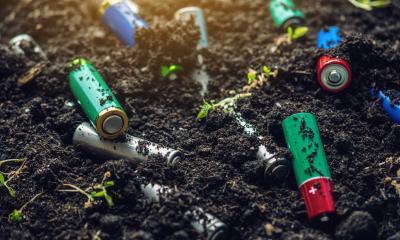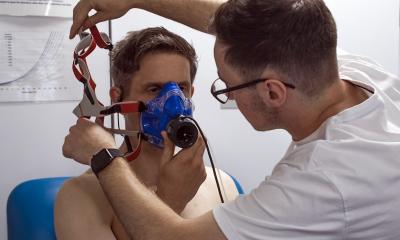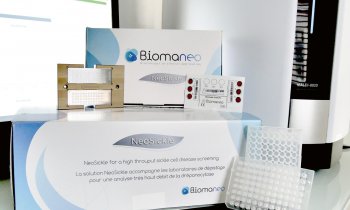Sophie Nicklaus
Driving sustainable, health-promoting food systems
Sophie Nicklaus has been officially appointed Scientific Director of Food & Health for a four‑year term, by Philippe Mauguin Chair and CEO of INRAE, following consultation with its Board of Directors on 13 October.

© INRAE - Christophe Rocle
She becomes a member of the institute’s Management Board. Since April 2024, she has served as Deputy Scientific Director of Food & the Bioeconomy under Monique Axelos, who will retire at the end of the year. Given the critical challenges of food security and sovereignty, the sustainability and cost of food, as well as the intersecting issues of public health and innovation, INRAE (France's National Research Institute for Agriculture, Food and Environment) has chosen to orient the remit of the new Scientific Director toward the domains of food and health, in order to contribute to the food of tomorrow: food that is healthy, sustainable, and accessible to all. A dedicated Scientific Directorate for Bioeconomy — first outlined under Monique Axelos — will be established by the end of the year.
Sophie Nicklaus’s appointment comes at a time of major transitions — demographic, nutritional, energy-related, climate, and economic — and amid growing societal expectations. Aligned with the INRAE 2030 scientific strategy, her mandate will focus on coordinating scientific and partnership activities related to food and health.
In her new role, Sophie Nicklaus will collaborate with INRAE’s other scientific directors to ensure consistency in research priorities across agriculture, bioeconomy, environmental science and global health. Reporting to Philippe Mauguin, Chair and CEO, and Carole Caranta, Deputy Director General of Science and Innovation, she will work closely with the scientific divisions involved in food-related research and its links to health. She will also engage with major institutional partners, including Inserm, the Institut Pasteur, ANSES, Santé publique France, and the wider network of universities and European and international research organizations.
Recommended article

News • When red means bad (for the heart)
Nutri-Score hints at foods that increase CVD risk
The Nutri-Score is designed to provide consumers with information on nutritional quality. New research reveals that the ratings also correspond with the cardiovascular health impact of the products.
The new Scientific Director will focus on four key priorities:
- Supporting the transition to sustainable, health-promoting food systems by integrating environmental, economic, and social dimensions;
- Informing public policy on food consumption and strengthening dialogue with society;
- Driving innovation in nutrition, food quality, and safety — notably through research on microbiomes and innovative processing methods;
- Assisting socio-economic actors in adapting production, processing, distribution, and consumption practices.
The research she will coordinate aims to improve understanding of the factors influencing dietary behaviour, the quality and sovereignty of food supply, and the innovations needed to reduce losses, waste, and environmental impacts. This work is part of a One Health approach, taking into account the interactions between diet, environment, and human health — with the concept of the exposome playing a central role — and incorporating challenges such as climate change and geopolitical crises.
This appointment reflects INRAE’s commitment to strengthening its capacity to produce high-quality scientific knowledge and to develop innovative solutions addressing today’s and tomorrow’s food and health challenges. “Food and health are daily and major concerns for each and everyone. Geopolitical crises threaten food autonomy, which is often taken for granted. The climate crisis calls into question the role and management of food systems. Economic tensions require us to responsibly consider both food security and business competitiveness. Research must provide insights into these challenges, in order to improve understanding of the issues, enable public policies to be based on science, and create innovative solutions that ensure enjoyment and well-being,” says Sophie Nicklaus.
Profile:
Sophie Nicklaus is an agronomist who graduated in 1995 from the Institut national agronomique Paris-Grignon (now AgroParisTech). She earned a PhD in food science from the University of Burgundy in 2004, followed by a postdoctoral fellowship at the Monell Chemical Senses Center in Philadelphia. She joined INRA (the National Institute for Agricultural Research and one of INRAE's predecessors) in 1998, holding various positions before being appointed Director of Research in 2014. In 2024, she became Deputy Scientific Director for Food & the Bioeconomy at INRAE, where she oversaw major research programmes funded under France 2030. Her work at the intersection of nutrition, health, and sustainability has earned her several awards, including the Danone International Prize for Alimentation (2018), INRAE’s Scientific Breakthrough Award, and the Légion d’honneur (2022).
Source: INRAE
16.10.2025







